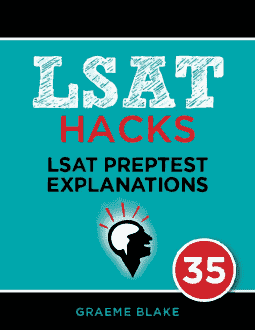QUESTION TEXT: A patient complained of feeling constantly fatigued…
QUESTION TYPE: Paradox
FACTS: A tired patient only slept 4-6 hours. This worsened their exhaustion, but doctors did not tell them to sleep more.
ANALYSIS: We can be pretty sure that the patient should sleep more. So we must explain the doctors’ advice.
The correct answer tells us that telling the patient to sleep might cause them to sleep less.
___________
- The patient doesn’t really care about awakening: they feel tired and want to sleep.
- But the other hours are still important: that’s why the patient’s low total sleep was contributing to their fatigue.
- That’s good for them. But this particular patient needs more sleep.
- We have no idea whether this patient has nightmares. And the last hour of sleep wasn’t mentioned. This is completely irrelevant.
- CORRECT. If you tell the patient to sleep more, then maybe they will worry and sleep less.

Free Logical Reasoning lesson
Get a free sample of the Logical Reasoning Mastery Seminar. Learn tips for solving LR questions


First of all who says telling someone will make them worry?
Second of all who says he didnt already know about once it was determined as the problem for the lack of sleep?
That’s the assumption. As long as there is a possibility that telling someone would make them worry, then that’s the correct answer since it explains the paradox.
I’m not sure what your second point is addressing. Can you clarify?
My second point is that the stimulus says that it was determined that the 4 – 6 hrs of sleep contributed to his bad sleep condition, so why would O assume that he did not already know about that (which according to answer choice E would already be sufficient cause for worry)?
The patient could (obviously would) know that he’s only sleeping four to six hours, but it’s possible that it’s not a concern for him. For example, many working professionals work long hours and after also taking care of household chores, they might end up with 4-6 hours of sleep. This would be considered their “norm” and might not inherently be a worrying thing until a doctor points it out. Also, the stimulus says that the patient complained of “feeling constantly fatigued,” not that he’s worrying that he’s not getting enough sleep. Be sure to differentiate between these premises and don’t assume they’re interchangeable. I think this is what the question is getting at.